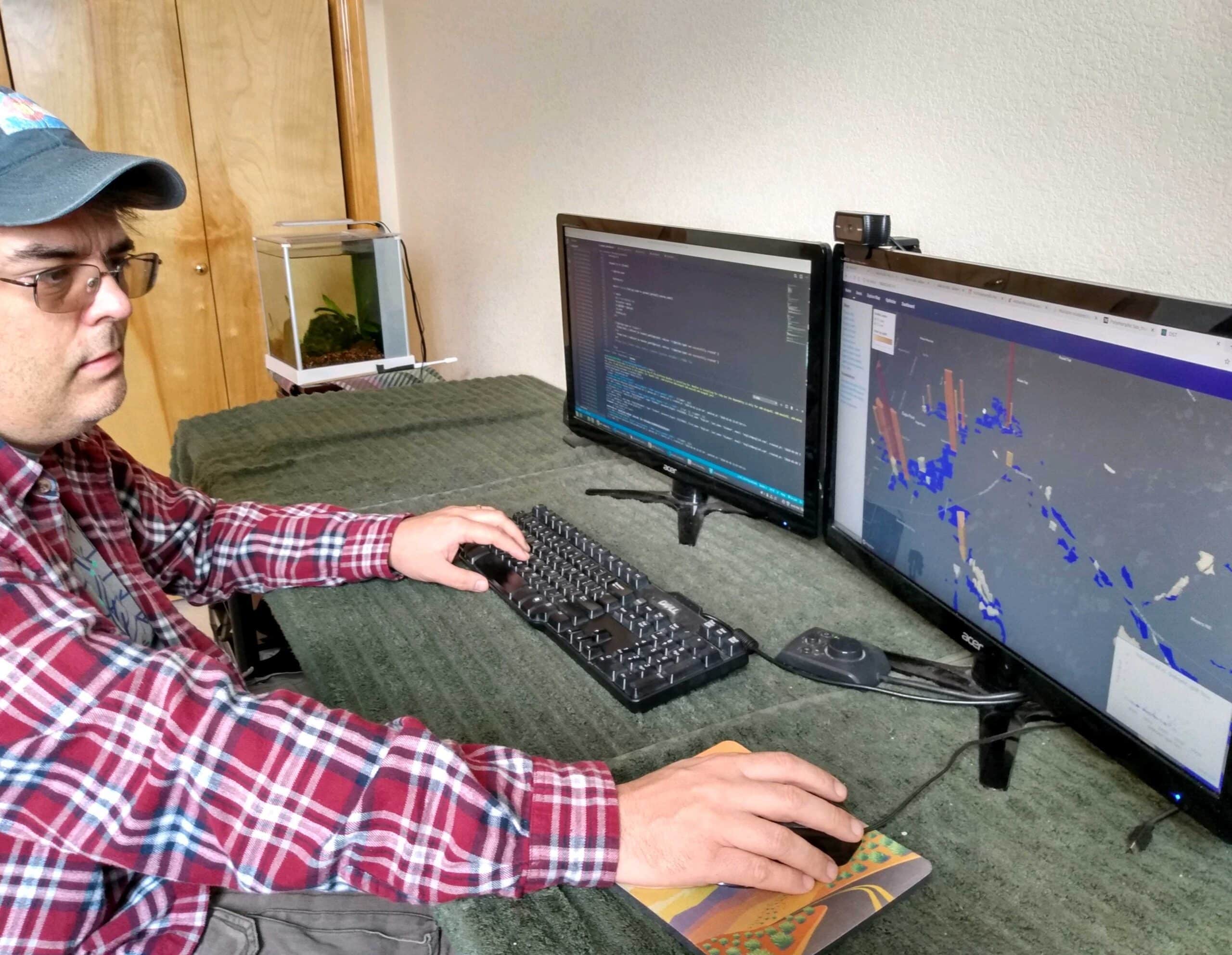(Data) Visualizing a Better Future for the Rogue
“You don’t know what you don’t know.”
At The Freshwater Trust (TFT), we understand that the problems facing freshwater ecosystems will not be solved by one person or by one organization. We don’t always have the answer, but rather than seeing that as a problem, we see that as an opportunity – who might have the answer, and how can they join us at the table?
Evelyn Cheng, an Ecosystem Services Analyst at TFT, had been working to develop a web-based application to support the United States Forest Service (USFS). USFS engaged TFT to help determine where their money could be used most effectively to help lower temperatures in the Rogue River basin.
Much of the Rogue and its tributaries lack healthy streamside forests, causing the water to warm and impacting the species calling it home. There is also a dearth in large wood and side channels, which means less habitat in places fish need it most. Since 2012, TFT has worked alongside local partners like USFS to solve these problems by planting thousands of native trees and shrubs, and replacing wood where it would naturally accumulate. TFT has also improved water quality by preventing cattle from having direct access to creeks and streams.
“The temperatures in the Rogue River — and many Wild and Scenic Rivers in the United States (US) — are too high for fish to survive or be healthy, so we have been working with the USFS to discover which actions are best for restoring them to conditions that are better for fish,” said Cheng. “I had been working mostly on the modeling and data analysis side of things, and then Will and I started building a web application which displays those model results in a way that natural resource managers can see where their restoration dollars could be most efficiently spent.”
Will Carter, a data visualization developer from Colorado, was introduced to TFT and Evelyn through the non-profit Metropolitan Family Service (MFS) Social Purpose Works, which recruits and matches talented pro bono professionals and highly skilled volunteers with short-term, high-impact, capacity-building projects for Oregon and Southwest Washington nonprofits.

Will Carter has almost 20 years of experience in web development and volunteered his time to support TFT's mission.
“When we took him on, I thought that we might just have him help out by building some basic maps,” said Cheng. “But once we started working together, before we knew it, we were flying.”
Carter, who is from Denver, has worked in web development since 2000 and has recently focused on web maps and data visualizations. A nature lover, he easily connected with TFT’s mission to fix rivers.
“One of my goals is to work on projects that have an impact for common good,” said Carter. “Most of my web development work has been on commercial, for-profit projects, so it has been great to get experience with an environmentally relevant project.”
Carter and Cheng worked together to create the first iteration of the web-based application that will eventually be used to map out where USFS projects can have the greatest ecological benefit for the amount of funding spent.
“We only wanted to build tools that people would really want to use,” said Cheng. “Will has been instrumental in laying out a solid foundation for this web application so that users can easily track the information they need.”
The web-based application, still in development, will include a map with explorable layers, filterable model results in tabular format and dynamic data visualizations, which display “uplift,” or the environmental benefit a given project could have, versus the cost of implementing a project.
“With his background in web development and geospatial analysis, Will is really good at adopting and incorporating the latest technologies into his work,” said Cheng. “His enthusiasm and commitment to learning new things deeply has been inspiring and contagious.”
Will was also able to offer Evelyn insights into new tools that will have lasting impacts on future projects for TFT and partners.

PostGIS is a powerful tool that allows developers to connect geospatial data, which are stored in a database, directly to web applications where users can visualize and interact with the data at lightning speeds.
One of these tools was PostGIS, an open source software program that allows for the storage of geographic objects, like rivers or land plots, in a database that shows their relationship to one another. PostGIS could allow someone to do a simple task, such as plot out rivers in an area, or a more complicated task, such as display all plots of land in a given watershed that are within one kilometer of a road undergoing maintenance. For TFT, that means being able to more efficiently analyze a watershed, ultimately allowing us to increase the pace of restoration, so that we can continue to fix rivers on a timeline that matters.
“The tools that Will introduced bring so much to the project and will help all of us to be more efficient,” said Cheng.
And, while she and many other TFT staffers fix rivers remotely, Cheng felt that her time working alongside Will prepared her well to be flexible and to seek out new ways to collaborate during this quarantine.
“It’s really fun to collaborate with people through video conferencing tools,” said Cheng. “You can do pair programming, where two people share the same screen and take turns writing code. That was a really good experience for me and him, and one that will also influence the way the analyst team works, especially if we stay remote for a long time.”
June 8, 2020Enjoying Streamside?
This is a space of insight and commentary on how people, business, data and technology shape and impact the world of water. Subscribe and stay up-to-date.
Subscribe- Year in Review: 2023 Highlights
By Ben Wyatt - Report: Leveraging Analytics & Funding for Restoration
By Joe Whitworth - Report: Transparency & Transformational Change
By Joe Whitworth - On-the-Ground Action – Made Possible By You
By Haley Walker - A Report Representing Momentum
By Joe Whitworth

